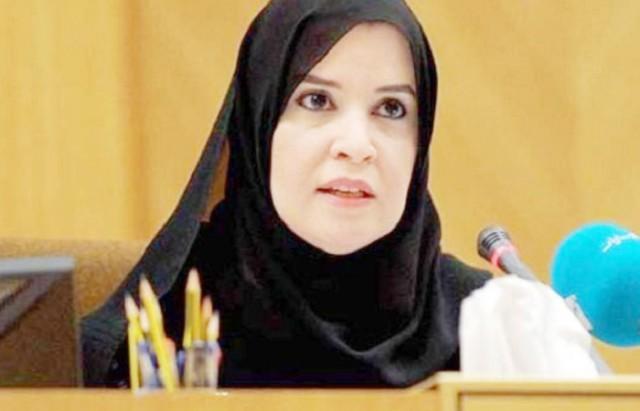
UAE hails ‘first woman in Arab world’ to head national council
The United Arab Emirates (UAE) made history on Wednesday when it appointed Amal Al-Qubaisi as president of the country’s Federal National Council (FNC), making her the Arab world’s first woman to be elected to the role.
Early last month, nearly 79,000 Emirati voters elected 20 representatives of the 40-member FNC, a government advisory body. The rest of the council members were selected by the authorities of each of the seven Emirates. The 40-member FNC is the advisory federal authority of the UAE, and was formed to represent the general public.
Eight women made it to the newly elected council, which is headquartered in the UAE capital of Abu Dhabi.
“I am proud to take this seat for the first time as a woman in the Arab world,” she said during a council session, after winning the role of president and speaker unopposed.
“I dedicate this achievement to the great women of the UAE, and to the Mother of the Nation, Sheikha Fatima bint Mubarak.”
This is not Qubaisi’s first time making the history record books. In 2006, she was the first woman to be elected in FNC and first female to chair one of its meetings.
For Dubai’s Khaleej Times city editor Mustafa Al-Zarooni, who has covered FNC politics since its inception, Qubaisi’s appointment did not come as a surprise.
“It’s a good step as it shows that UAE leadership supports and encourages the role of women in politics and society,” Zarooni told Al Arabiya News.
“She was part of the old council and is considered a veteran of FNC’s politics. She previously served as vice-president of the council for a while and showed that she has the capabilities and leadership drive to reign in the council at times of need,” he said.
Dubai-based Professor and Political Analyst Abdulkhaleq Abdullah told Al Arabiya News that while there are critics who might say electing a woman council president could simply be for show, Qubaisi’s rise to the position took years and effort from her part.
“I don’t consider it as an appointment. Such roles have to go through their relevant official process. Considering that the new council is two-thirds newly elected, she has the most merit. She has the most experience and capabilities,” he said.
“It’s not because she’s a woman but because of her credentials,” Abdullah added.
Compared to other GCC countries such as Bahrain and Kuwait, local elections are a relatively new phenomenon in the UAE.
Kuwait has the longest recorded political culture in the region, given that it elected its first national assembly in 1921.
Kuwait’s ruling family dissolved parliament in 1939, but it was reinstated in 1962 following independence the previous year. Bahrain elected its fourth parliament at the start of this year, with a strong turnout of 51.5 percent.
UAE’s newly-elected FNC is only in its third cycle and analysts suggest the country needs more time, as compared to its Gulf neighbors, before it can bare public criticism.
“It’s still too early to judge how this council will perform. But it’s great that only a third of the old council’s members were re-elected while everyone else are new members. But we’re hoping that new blood will allow for the ease of the council’s duties and responsibilities,” Zarooni said.

























